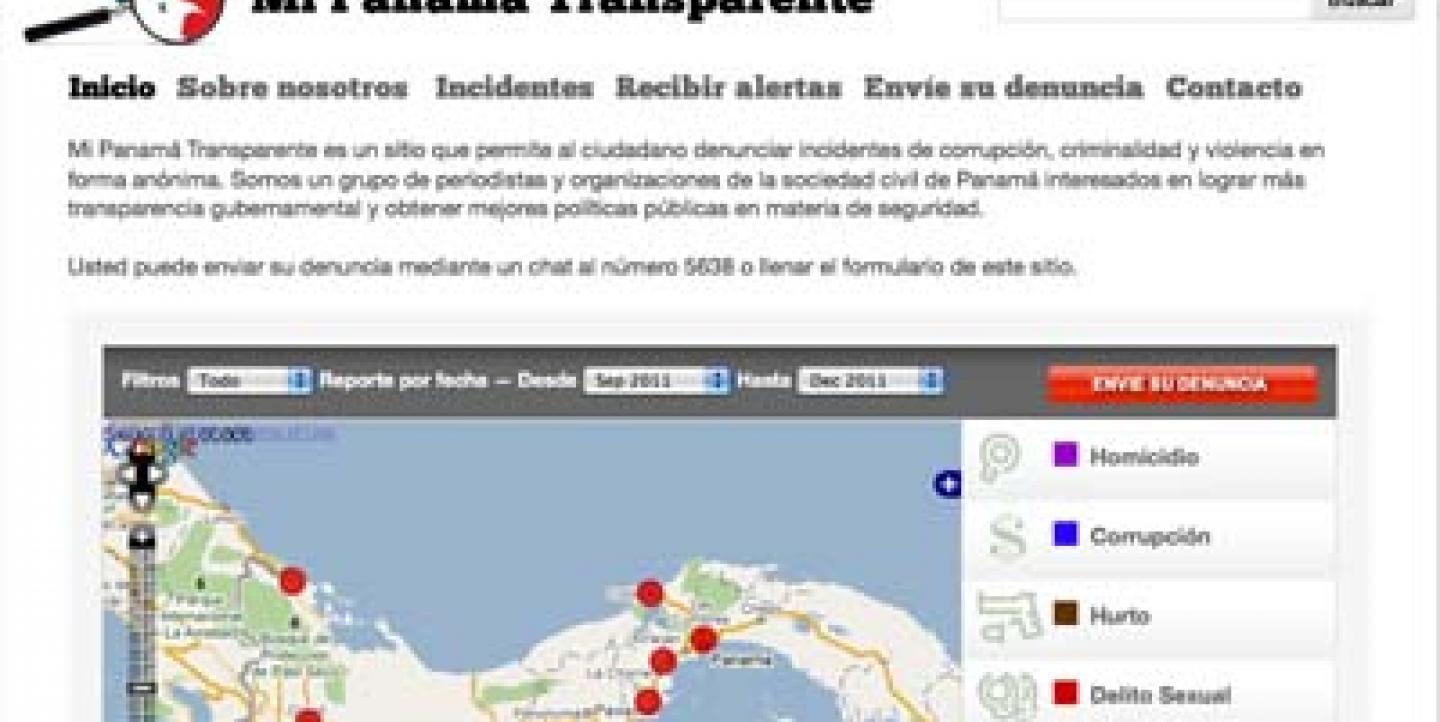Bystanders getting robbed in a pedestrian bridge. A drug gang operating from a building near a well-known restaurant in the capital city.
These are some of the complaints received by "Mi Panama Transparente" (MPT), a website that investigates and publishes citizen reports of corruption and crime in collaboration with traditional media.
The site, whose name roughly translates to "my transparent Panama," launched in June 2010. It has received more than 300 complaints, and there are plans to replicate the project in Mexico, Colombia, Venezuela and Guatemala.
The website uses the Ushahidi platform, an open-source mapping software first used in Kenya in 2008 to keep citizens informed during post-election violence.
MPT allows citizens to report online or via text message any crime or act of corruption. After receiving the complaint, the project’s team makes contacts the person who submitted the report to investigate and verify it.
One recent success story came after residents complained about the lack of lighting on a pedestrian bridge over a four-lane highway in San Pedro, a densely-populated metropolitan area of Panama City.
Several people reported being robbed there, a spot favored by local gangs for initiation rites. Locals avoided the bridge, instead crossing the road through heavy traffic.
The story was published in La Prensa, one of Panama’s leading newspapers, which works with MPT. Soon after the bridge's lighting was restored and police promised to send more patrols to the area.
For Jorge Luis Sierra, an award-winning investigative journalist and project leader, this is an example of the positive impact of MPT and how people and media can work together. Sierra started the project as part of a Knight International Journalism Fellowship.
"The problem of the press (in Panama) is that they don’t cover community news. The media only focus on political news. For the media this is not news,” Sierra said. He added that reporters don’t have time for stories that aren’t breaking news. "We must change the culture in newsrooms."
MPT also offers training to Panamanian journalists with the aim of producing better quality stories. MPT works with Transparency International and traditional media in Panama like La Estrella and Panama America newspapers and two TV stations. The project has trained 112 journalists to date.
MPT's director explained that Panama has become one of the victims of drug trafficking in recent years. Several drug cartels, including the Sinaloa Cartel and the Zetas, are active throughout Central America, using this area as a corridor for transporting drugs and moving their bases of operations to these countries, increasing violence rates.
Panama’s murder rate almost doubled in the last three years, according to The Economist.

